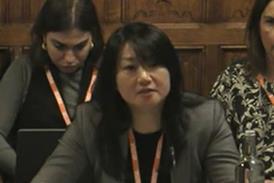Decisions filed recently with the Law Society (which may be subject to appeal)
Julia Cooper
Application 12213-2021
Admitted 1993
Hearing 11–15, 27 October 2021
Reasons 6 January 2022
The SDT ordered that the respondent should be struck off the roll.
The respondent had facilitated an attempted purchase of a residential property in London, E7 by G, the respondent’s civil partner, from an elderly client, S, at a price that she knew, by the time of any attempted purchase, to be an undervalue to the potential detriment of S and the benefit of G and/or the respondent, thereby breaching principles 2, 3, 4 and 6 and 10 of the SRA Principles 2011 and failing to achieve outcomes 1.1, 11.1 and 3.4 of the SRA Code of Conduct 2011. She had acted dishonestly.
In furtherance of that proposed purchase, she drafted or prepared an agreement to potentially purchase the property from S, which contained terms potentially disadvantageous to S and potentially advantageous to G, thereby breaching principles 2, 3, 4 and 6 and failing to achieve outcomes 1.1, 3.4 and/or 11.1 of the code.
She had caused or permitted S to sign the agreement in circumstances where she knew that it contained declarations that S had been invited to receive independent legal advice and had taken such independent advice on its terms, when she did not know or believe that, thereby breaching principles 2, 4 and 6. She had acted dishonestly.
She had made one or more statements to the SRA regarding her dealings with S which were false and misleading, thereby breaching principles 2 and 6 of the Principles, and principles 2, 4 and 5 of the SRA Principles from the SRA Standards and Regulations 2019. She had acted dishonestly.
She had drafted and arranged execution of a will for S, which appointed herself as executrix and sole beneficiary of S’s estate, thereby breaching principles 2 and 5 of the 2019 Principles and rule 6.1 of the Code of Conduct for Solicitors, RELs and RFLs 2019.
The respondent had been motivated by financial gain. She had acted in flagrant breach of the trust placed in her by her elderly client. Her conduct had the potential to cause significant financial loss to her client and had caused extensive harm to the reputation of the profession.
The respondent had continuously and repeatedly failed to conduct herself with the standards of probity and integrity expected of a solicitor.
In view of the serious nature of the misconduct, in that it involved dishonesty, the only appropriate and proportionate sanction was to order that the respondent be struck off the roll.
The respondent was ordered to pay costs of £44,979.
Rajinder Kumar Puri
Application 12248-2021
Admitted 2007
Hearing 6-7 December 2021
Reasons 10 January 2022
The SDT ordered that the respondent should be struck off the roll.
While in practice as a solicitor for Rothery Inesons Solicitors and while in the position of COLP and COFA, the respondent had:
- failed to have appropriate insurance in place while continuing to practise, thereby breaching rules 4.1 and 5.1 of the SRA Indemnity Insurance Rules 2013, principles 4, 6, 7 and 8 of the SRA Principles 2011, and rule 10.1 of the SRA Indemnity Insurance Rules 2019 and principles 2 and 7 of the SRA Principles 2019;
- continued to practise, including holding client money, without appropriate insurance when he knew or ought to have known that no appropriate insurance was in place, thereby breaching rules 4.2(c) and 5.2 of the SRA Indemnity Insurance Rules 2013, principles 2, 4 and 6 of the SRA 2011 Principles, rule 10.1 of the Insurance Indemnity Rules 2019, and principles 2, 4, 5 and 7 of the 2019 Principles, and had acted dishonestly to the extent that such conduct occurred prior to 25 November 2019;
- provided falsified bank account statements to the SRA, in breach of sections 44BC(1)(a) and (3)(a) of the Solicitors Act 1974, and principles 4 and 5 of the 2019 Principles, and had acted dishonestly to the extent that such conduct occurred prior to 25 November 2019.
The potential harm to clients in practising without PII was significant and severe. The misconduct was aggravated by the fact that, inter alia, it included two distinct matters of dishonesty.
Given the SDT’s determination that the respondent’s misconduct was at the highest level, the protection of the public and of the reputation of the profession required the imposition of an order striking the respondent from the roll.
The respondent was ordered to pay costs of £28,000.
Tapfumanei Nyawanza
Application 12231-2021
Admitted 2009
Hearing 23-24 November 2021
Reasons 12 January 2022
The SDT ordered that the respondent should pay a fine of £12,500.
In September 2014, GR had instructed the respondent on an application. The respondent did not comply with directions made in 2015. As a result of the respondent’s non-compliance, the application was struck out in October 2015. After the striking out, the respondent drafted letters confirming the action was proceeding, not having noticed that the claim had been struck out. The respondent had therefore drafted letters that had turned out to be misleading. He had thereby breached principle 6 of the SRA Principles, and had failed to achieve outcomes 1.2 and 1.5 of the SRA Code of Conduct 2011.
GR had instructed the respondent to act on an application, but he did not carry out those instructions properly. He failed to comply with directions, which meant the application was struck out, and did not work on the case from February 2016 to 30 January 2018, thereby breaching principles 4, 5 and 6, and failing to achieve outcomes 1.2, 1.5 and 5.3 of the code.
The respondent’s actions had caused harm to his client. GR’s evidence was that her immigration status was unsettled for a prolonged period as a result of his misconduct. He had provided her with a poor service, and had caused her very significant stress.
The respondent’s misconduct was not a one-off. He had made many errors, and the misconduct had continued over a period of time. He had, however, made admissions to all the matters that had been found proved, and had cooperated throughout the investigation and proceedings. A financial penalty of £12,500 was appropriate, having regard to the respondent’s culpability and harm caused.
The respondent was ordered to pay costs of £3,000.





























